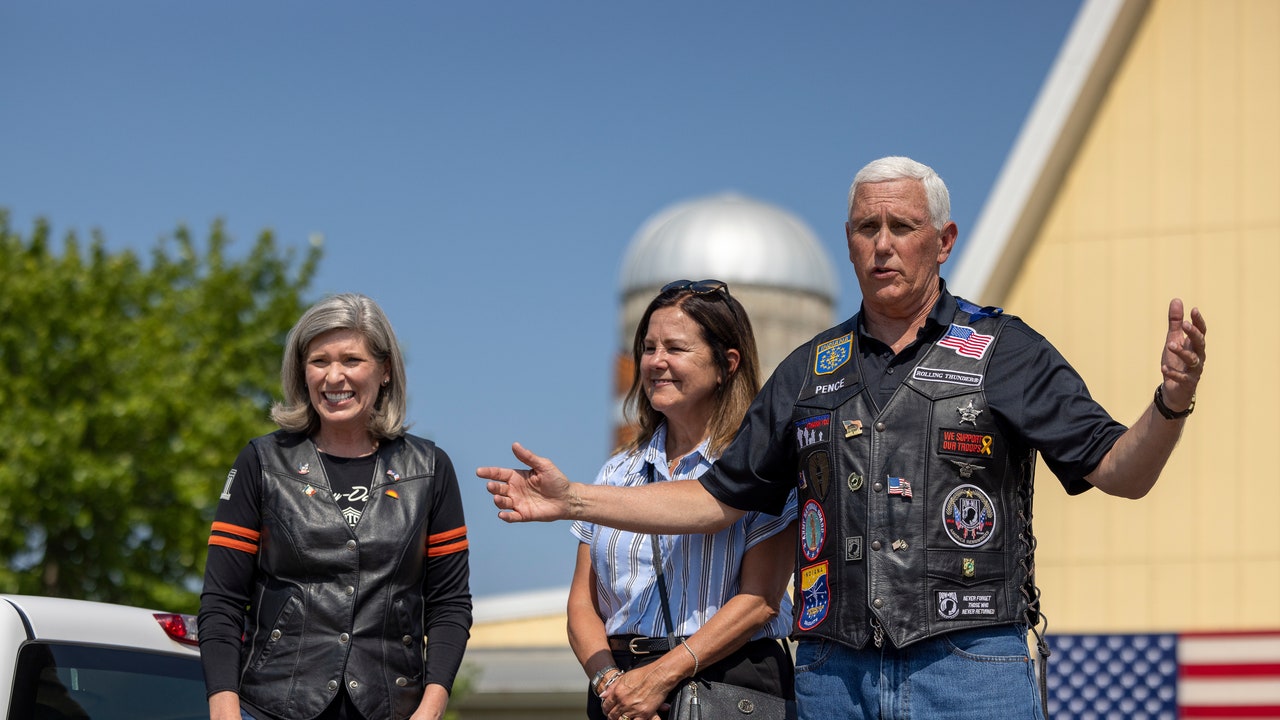[ad_1]
The GOP field is set to expand again this week, with former New Jersey Governor Chris Christie, former Vice President Mike Pence, and some guy from North Dakota expected to announce White House bids in the coming days. (It’s Doug Burgum, North Dakota’s little-known governor.) That, presumably, is welcome news to Donald Trump, who capitalized on a crowded, fractured 2016 race to win the Republican nomination that cycle and, eventually, the presidency. Things are somewhat different this time around, of course: The American public experienced what four years of Trump was like and rejected a second term in 2020, and the former president is mounting his 2024 run with the added weight of two impeachments, dozens of criminal charges, and intensifying investigations on his back. But he remains the frontrunner because he continues to command a large, enthusiastic base, which is likely to be defeated only if the opposition is united.
A large, unwieldy cast of candidates makes that prospect more difficult. Trump has already enjoyed a comfortable lead over his existing opponents: Ron DeSantis, Vivek Ramaswamy, Tim Scott, Asa Hutchinson, and Nikki Haley, whose CNN town hall Sunday night produced neither the fireworks of Trump’s town hall last month nor the headlines she was looking for to pull her out of the low-single digits in the polls. The jockeying for an alternative to Trump will only get more complicated with the addition of Christie, a Trump ally-turned-critic whose last run in 2016 didn’t last past New Hampshire; Pence, the former vice president who only recently mustered up the courage to say Trump was wrong to almost get him killed on January 6; and Burgum is expected to announce Wednesday as a pragmatist — despite a record as far to the right as DeSantis, with none of the name recognition.
“There’s a value to being underestimated all the time,” Burgum told Fargo’s the Forum last month, expressing a desire to appeal to the “silent majority” in the GOP. “That’s a competitive advantage.”
Maybe that’s true, if people know who you are. But they don’t, and it’s hard to imagine him doing much beyond siphoning a percentage point or two away from one of the other self-professed pragmatists already in the field. Christie and Pence have bigger profiles, of course. But it’s not clear those profiles are advantages for these two. As Politico noted Monday, nearly two-thirds of GOP voters in a recent poll said they would not support Christie under any circumstance: “They’re not going back to before 2016,” Republican strategist Sarah Longwell told the outlet, ahead of Christie’s anticipated Tuesday launch. Pence’s profile, meanwhile, is owing to his four year role as Trump’s sycophantic sidekick; Trump has cast Pence’s very bid, which he is expected to announce in Iowa Wednesday, as a betrayal of that role — a cardinal sin in the MAGA world.
That cult of personality still prevails on the right: Polls suggest Trump has more than 50 percent of GOP voters behind him, some 30 points better than his nearest rival, DeSantis, whose strategy so far has been to try to out-authoritarian the former president. Trump’s advantage is not insurmountable; despite his tight grip on the party, there is clearly at least some appetite among Republicans for an alternative — either for ideological reasons or more practical concerns about his ability to beat Joe Biden. But unless they can unify around a single, viable alternative relatively quickly, they could find themselves in the same place they were seven years ago — with a crowded scrum of aspirants fighting amongst themselves, while Trump marches to the nomination. Trump’s team apparently knows this, with a source close to the campaign telling Vanity Fair‘s Gabriel Sherman earlier this year that the former president’s “entire primary strategy is based on getting a plurality.” In other words, the ballooning GOP field is exactly what Trump wants. “I’m very concerned that we appear to be making the same mistakes that we made in 2016,” former Maryland Governor Larry Hogan, who opted not to run to avoid crowding the anti-Trump field, told Reuters recently. “It’s the definition of insanity continuing to do the same thing over and over again and expecting a different result.”
[ad_2]
Source link
